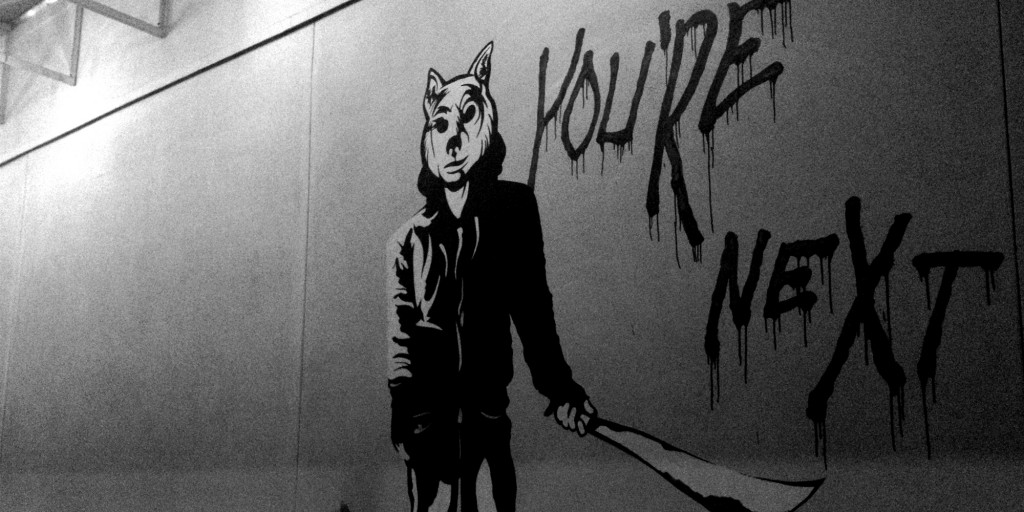
Words by Feliks Garcia
Photograph by Jessica Alexander
This month, the movie-going public became aware of the fact that the National Security Agency is collecting the phone numbers they dial and calls they receive. And while this data-mining is the result of twelve years of post-9/11 national security policy, the American public is outraged at the revelation that Obama, too, supports this sort of surveillance for the “protection” of Americans. According to Gen. Keith Alexander, the director of the NSA, harvesting phone numbers and other internet information has thwarted “dozens” of attacks in America and abroad, and by this logic, the sacrifice of privacy is a means to an end.
This week, countless patrons of the Alamo Drafthouse, an Austin-based mega-cinema in its larval stage, silenced their phones once the glowing PSA lit the screen and inundated the captive audience with warnings — no, promises — of ejection if they’re caught with a glowing phone or utter so much as a peep. A lot of cinema patrons love this policy, including myself. But when does a “No Talking” policy in a movie theater become less about courtesy for others and more about the policing of your experience?
How are these two issues related? On the surface they certainly don’t seem to have much to do with one another, but I feel that they both feed into a culture of surveillance that has become more noticeably widespread in the 21st century.
The Alamo Drafthouse is a movie theater chain founded in Austin, Texas in 1997. The principles of the theater were simple: “to be a theater for movie fans by movie fans.” In addition to featuring movies, the Alamo was also a place food and drink beyond popcorn and sodas. The added perk is your food and drink are delivered by a server, bringing a restaurant element into the mix. The Alamo certainly isn’t the first dinner cinema, but it is definitely the most successful, and that largely has to do with how they market themselves.
Two years ago, the Alamo received national attention for a PSA spot that went viral. In the spot, a disgruntled patron, angry about being kicked out without a refund, leaves a voicemail about her personal freedoms guaranteed by living in the “Magnited States of America,” a phonetic mispronunciation of the United States. The voicemail was transcribed verbatim and included emphasis on her grammatical errors, mispronunciations, inflection, and stutters. Her ejection from the theater was a result of their zero-tolerance “NO TALKING” rule as she was evidently caught texting during the screening. At the Alamo, “texting and tweeting totally count as talking.” Understandably, the theater can create and enforce any rule they please, as it’s a privately owned corporation, and their talking rule does appear to exist for the benefit of patrons who want to view a movie undisturbed. This rule seems great on the surface, but what results is an experience where the audience simply trades one form of interruption for another.
At the movies, audience members engage in a private experience in a communal setting. The darkness of the theater shrouds you in a blanket of isolation, and although you’re in a big room with one hundred others, the experience is yours. It is private. Random talking or the glow from a neighbor’s cell phone can pull you out of that isolation. This private experience can be upheld at a typical Alamo Drafthouse because of that relationship with the screen the darkness promotes. What’s interesting, however, is the disconnect that happens when an audience member is forced to interact with the server. Often the servers are slick and can go unnoticed, but as the chain grows, the bottom line becomes about sales rather than the programming, resulting in a more intrusive approach to customer service.
The Alamo’s policies, then, work to protect the movie-viewer from the external threat of disturbance. “We want to keep the movie-watching experience safe from people who aren’t movie fans,” owner Tim League asserts in an informational video on the theater’s “About” page (emphasis mine). League’s language in this situation assigns a certain amount of fear onto the audience, as any unwelcome disturbance is subject to immediate ejection. The only “safe” disturbance, comes form the servers and food runners who are allowed to break the patron’s attention and interrupt the film.
The enforcement of Alamo’s talking policy depends on the cooperation and participation of the audience. The audience must agree to follow these rules, and they aren’t afraid to enforce them. Common decency dictates that you shouldn’t talk during a film, at least at the expense of those around you, and if you do engage in conversation during a film, you are marked as a threat. To enforce this, then, the audience is conditioned to shift their gaze from the screen to each other.
The theater — audience included — is now watching you and incentivizing your vigilant efforts to ensure an “uninterrupted” viewing experience with snacks and 90s nostalgia.
Is what the Alamo Drafthouse doing similar to what the NSA is doing? Nope. What’s important to consider, however, is how surveillance has overtly infiltrated the daily lives of the average American, and patrons of the Alamo will happily participate in focusing their collective gaze away from the screen and onto their menus and neighbors. Patrons of the Alamo are sacrificing their simulated privacy for the freedoms of pizza and beer; and it’s a worthy sacrifice because the Drafthousian panopticon is keeping them safe.
I would just keep my eye on the Alamo, if I were you. Before you know it, they may keep detailed records of your purchases, seats, times of arrival, and, yes, your behavior. As for me, I’ve got plenty of aluminum foil.◥
The featured photos are part of Jessica Alexander’s “Vanishing Austin,” a series chronicling the ever-changing urban geography of Austin, TX.








Leave a reply
You must be logged in to post a comment.